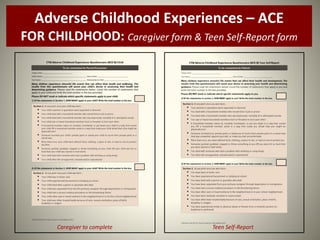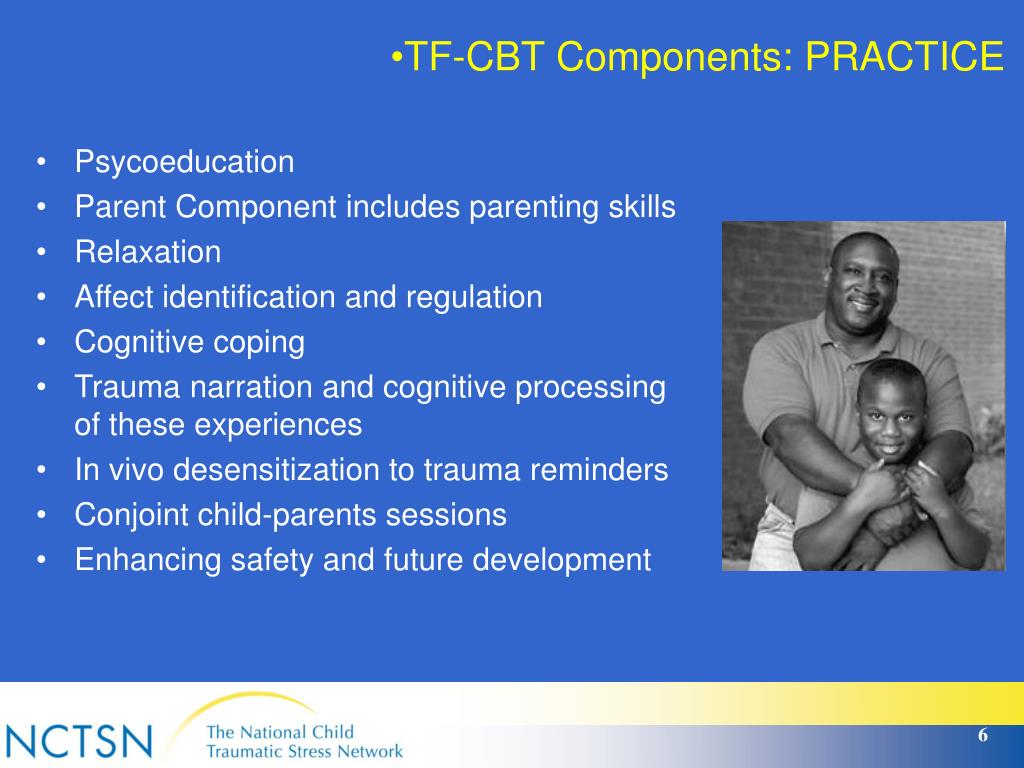

Improvements were seen across domains of emotional, behavioral, and attentional control and problem solving, with larger effect sizes for adolescents. Caregivers reported on youth executive function at pre, mid, and posttreatment assessments.īoth children and adolescents demonstrated reductions in global executive function difficulties during TF-CBT.
#Trauma focused cbt trial#
Participants were 278 racially and ethnically diverse youth with interpersonal trauma histories and their caregivers enrolled in a community-based effectiveness trial of TF-CBT in an urban setting. In the current study, we examined changes in caregiver-reported executive function difficulties during TF-CBT among children ages 6 to 11 and adolescents ages 12 to 17. No study has examined executive function improvements during TF-CBT or the potential differences in these outcomes between children and adolescents. Moreover, adolescence is a sensitive period for executive function development, and interventions aimed at improving executive function may confer greater benefits for adolescents relative to school-aged children. Other trauma-focused therapies do not primarily focus on the traumatic event. Evidence-based treatments for traumatized youth such as Trauma-Focused Cognitive Behavioral Therapy (TF-CBT) aim to equip youth directly with skills for effective self-regulation and may thus also improve executive function. Reclaiming your life in TF-CBT is about returning to things that you used to enjoy or building a new life that you value.Children and adolescents impacted by childhood trauma often demonstrate executive function difficulties, which negatively affect self-regulation and potentiate the risk for trauma-related psychopathology and functional impairment. While this is an understandable response to trauma, unfortunately this can have a negative impact on quality of life, mood and actually make PTSD symptoms worse in the long term. Belief work in TF-CBT is about making sense of what you thought at the time of the trauma and deciding what is a helpful and accurate way to think about yourself and your situation now.Ī common response to trauma is to start avoiding things which trigger your anxiety or PTSD symptoms. Sometimes after experiencing trauma we develop negative thoughts or beliefs. This is called memory processing and is done in a careful and structured way in TF-CBT. It is short-term, structured therapy, provided in 8-25 sessions, each session lasting 60 to 90 minutes. This might involve talking through what happened or writing or drawing about it. Trauma-Focused Cognitive Behavioral Therapy (TF-CBT) is a psychotherapy for children ages 3-18 who have experienced trauma. I specialise in gentle mind-body grounding techniques, using breathing techniques, visualisation and simple chair-based yoga postures. These might include relaxation exercises, or other techniques to help you stay grounded in the here-and-now. This stage of therapy involves practising techniques to manage the overwhelming feelings that PTSD brings. TF-CBT usually consists of some or all of the following:

TF-CBT is an effective treatment for PTSD that is recommended by the National Institute for Health and Clinical Excellence (NICE), the organisation that the NHS receives its national guidelines for treatment and care from. You can find out more about the symptoms of PTSD by clicking here. Trauma-Focused CBT, for all ages is a 3-day course from the Association for Psychological Therapies (APT), a leading provider of accredited training for professionals working in mental health and related areas in the UK and Ireland.

Trauma-focused CBT (TF-CBT) is an evidence-based form of Cognitive Behavioural Therapy for Post Traumatic Stress Disorder (PTSD).


 0 kommentar(er)
0 kommentar(er)
